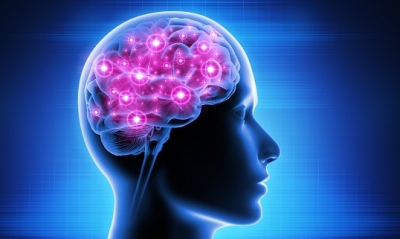Why head injuries may up risk of developing brain cancer
By IANS | Published: February 27, 2023 04:27 PM2023-02-27T16:27:04+5:302023-02-27T16:50:13+5:30
London, Feb 27 Suffering head injuries can one day lead to the development of a relatively rare but ...

Why head injuries may up risk of developing brain cancer
London, Feb 27 Suffering head injuries can one day lead to the development of a relatively rare but often aggressive form of brain tumour called a glioma, according to a study.
The study, published in journal Current Biology, found that patients who experienced a head injury were nearly four times more likely to develop brain cancer later in life, than those who had no head injury.
The reason is that mutations in certain genes synergise with brain inflammation, which is induced by acute injury and then increases over time during the natural process of ageing to make astrocytes more likely to initiate a cancer.
However, it is important to keep in mind that the risk of developing brain cancer is overall low, estimated at less than 1 per cent over a lifetime, so even after an injury, the risk remains modest, said researchers from the University College London.
"Our research suggests that brain trauma may contribute to an increased risk of developing brain cancer in later life," said lead author Professor Simona Parrinello from UCL's Cancer Institute.
"We know that normal tissues carry many mutations which seem to just sit there and not have any major effects. Our findings suggest that if on top of those mutations, an injury occurs, it creates a synergistic effect.
"In a young brain, basal inflammation is low so the mutations seem to be kept in check even after a serious brain injury. However, upon ageing, our mouse work suggests that inflammation increases throughout the brain but more intensely at the site of the earlier injury. This may reach a certain threshold after which the mutation now begins to manifest itself," Parrinello said.
Gliomas are brain tumours that often arise in neural stem cells. More mature types of brain cells, such as astrocytes, have been considered less likely to give rise to tumours. However, recent findings have demonstrated that after injury astrocytes can exhibit stem cell behaviour again.
The findings confirm this the study stated that genetic mutations acting in concert with brain tissue inflammation change the behaviour of cells, making them more likely to become cancerous. After testing in mice, the team confirmed the theory in humans. They examined electronic medical records of more than 20,000 people who had been diagnosed with head injuries, comparing the rate of brain cancer with a control group.
Disclaimer: This post has been auto-published from an agency feed without any modifications to the text and has not been reviewed by an editor
Open in app